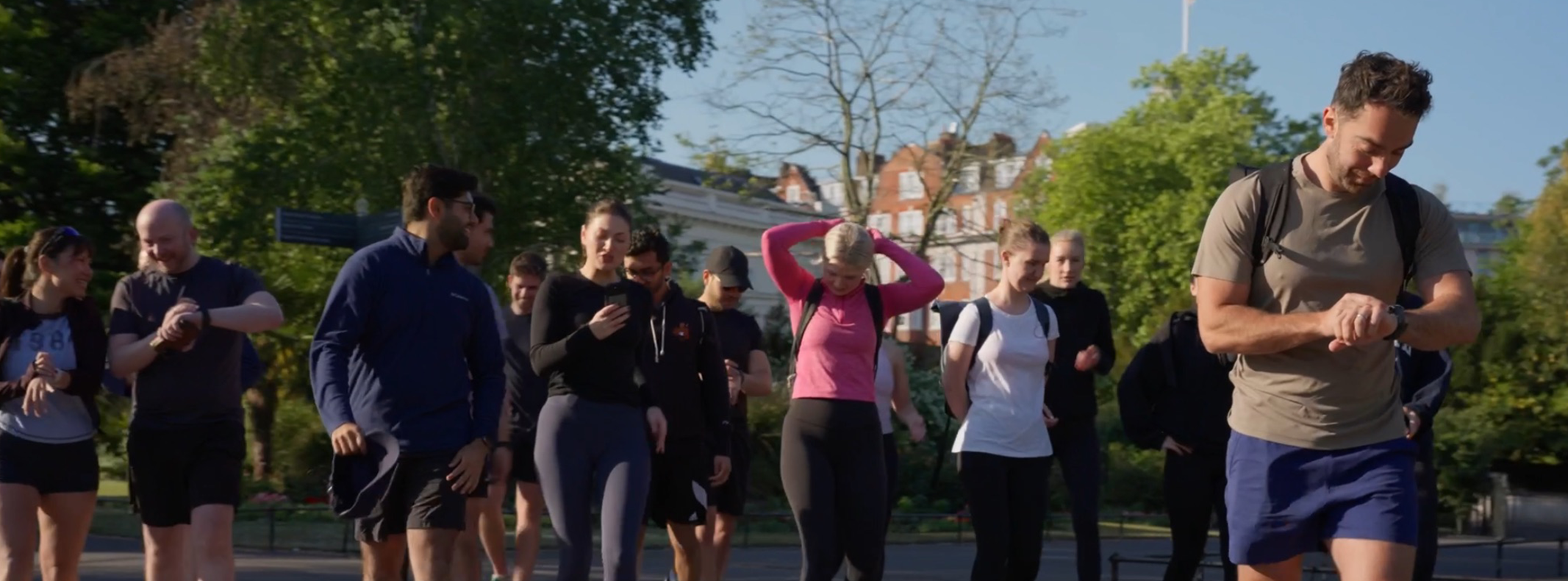Lessons in fintech scaling
Innovation isn’t a moderate force. True innovators don’t just tinker or adjust – they fundamentally reimagine how things are done. Karl Gilbert, co-founder and CEO of Raylo, is one such innovator.
Raylo was founded in 2019 with a mission to accelerate the transition to a circular economy, offering flexible, affordable leases of cutting-edge tech. Critically, it’s not about ownership. Through their platform, Karl and the Raylo team facilitate the reuse of devices, minimising e-waste even as they offer an outstanding customer experience.
It’s fintech on a mission, exemplifying the world-changing ambition we look out for here at Octopus Ventures. We sat down with Karl to hear some of his lessons in leadership, and learn more about what it takes to scale a mission-driven fintech to world-changing heights.
Transitioning from founder to CEO is a learning curve
KG: In the early days, the founder is super scrappy, firefighting everything, getting involved in all the detail – almost every decision.
But as you scale you realise, of course, that isn’t a scalable process. That’s when you have to be clear about letting go, and trusting in the great talent that you’ve hired to be focused on particular tasks and parts of the business. It’s a question of hiring phenomenal talent, who are going to be focused and, ultimately, better than me at doing something. It’s about identifying the key levers in the business that require extreme focus – and hiring great people to focus on them.
It’s not something you can adjust to in a few weeks or months; it takes time, and you’ve got to be deliberate about the areas you give up, and the right talent you want to hire as you go through that process.
Finding the mission-driven advantages
KG: Our mission is in everything that we do: how we build our objectives and key results (OKR) framework, how we think about prioritising various initiatives.
One of the most important parts of our interview process is testing alignment from a mission perspective: it’s a way of identifying the talent that’s really engaged in the business. And it’s allowed us to hire phenomenal people up against stiff competition from excellent businesses – the mission perspective gave us an extra dimension.
It also can be extremely helpful attracting the best commercial partners. NatWest bank is a key financing partner; they worked with us at a much earlier stage than they would have done with other businesses – thanks to their strong belief in the transformative impact of circularity in electronics. It plays out in other key commercial partnerships, too.
You have to give something in return
KG: If you’re trying to have some impact on the world, you’re asking your customers to change behaviour, in some shape or form. In our case, when customers first join Raylo we’re asking them to commit to participating in the circular economy.
We’re asking them to change their behaviour, which is why its essential we give them amazing pricing, great flexibility and a seamless experience. Our mission is critical, but customers rightly expect great value, flexibility and service. In return for changing their behaviour, we strive to deliver a 10x better proposition.
What’s central to our proposition is that it’s just far better. It leads with value and flexibility – the most important things for consumers and businesses. Impact and sustainability also matter, but they’re secondary factors. We remove the pain-point around commitment, and wrap it all in a great experience. It’s not something you ask customers to sacrifice.
We’ve also thought deeply about the other side of the marketplace: the manufacturers. We treat them in the same way as customers – our platform is fundamentally differentiated to deliver the strongest value to them. If you’re mission-led, you have to be trying to change something. You have to be clear about what that is, and how differentiated your platform or service is.
Remember differentiation as you approach a funding round.
KG: It does shift through different stages, but the same point about customers can be played out to investors. It’s about how you’re differentiated, and why will your differentiation and competitive advantage compound over time. That message has to be clear and well articulated.
At Raylo, we always think about improving our unit economics through deep vertical integration: owning more of the value chain, capturing more margins and delivering better customer experience. The pillars supporting that are our best-in-class analytics and risk platform, and great customer experience to capture the network effects of referrals and retention.
Investors will want to see that play out in numbers – particularly unit economics. So it’s essential to have all the data around that well prepared, to back up the story you’re telling them.
Think about who you want to work with
KG: When it comes to key attributes to look for in investors, it’s about the people you want to work with over a potentially very long period of building and pursuing your mission. Their conviction in the mission and alignment around it is absolutely crucial.
The best investors don’t just buy into the numbers and the financial outcome; they believe in the founder’s vision and ability to execute, and the team that have been assembled around the mission.
Through that you can identify who’ll be there and backing the business through periods of volatility in the future as well.
The fundraising period is longer than you think
KG: A lot of people treat fundraising as quite transactional. They almost visualise it as an intense period of engaging with investors that’s quickly over, and you select your partner for the next five or 10 years.
What’s probably under-appreciated is that a lot of the work, investment in the narrative in the years preceding the fundraise all really shape the kinds of investors who are going to be most engaged, who follows your story or has an awareness of the business.
There’s lots for a CEO to manage, growing a business, but it’s essential you’re clear and consistent in telling the story about what you’re building, why your competitive advantages will compound over time.
It often shapes who you’re going to be sitting in front of in three year’s time.
Many thanks to Karl for sharing his insights. We’ve been delighted to back Karl through Raylo’s growth journey, as they’ve scaled the business to over £40M ARR and welcomed over 100,000 subscribers to the circular economy, delivering excellent customer experiences even as they’ve addressed the problem of e-waste.
Karl and his co-founders, Richard and Jinden, represent true pioneers, leveraging the cutting edge of technology to build fintech that will change the world. You can learn more about our original investment into Raylo here, and if you want to learn more about what we offer the founders we back, have a look at our website.
And if you’re a pioneer, building a fintech solution on a mission to change the world – introduce yourself. You can learn more about pitching us here.













